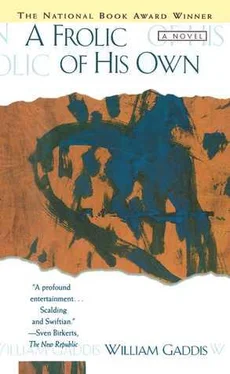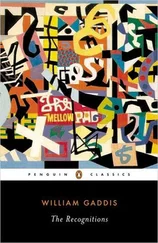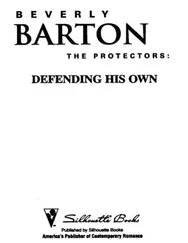An understanding of the issue requires some description of what was in the public domain, as well as of the play and the motion picture. As attested in exhibits submitted by the parties consisting in the main of journalistic and similar accounts published subsequent to the actual events, one Thomas Crease, a Carolina resident at the time the Civil War began, enlisted as a private in the Confederate army and fought in the battle at Ball's Bluff, where he was slightly wounded. He was intestate heir to valuable coal properties in Pennsylvania, and upon learning that these were in danger of confiscation by the Federal government, he received permission from the Confederate authorities to go north to protect his interests which he did, hiring a substitute to take his place in the army, a not uncommon practice. Complications arising in the North obliged him to provide a substitute to serve in the Union army as well, and both were killed at 'bloody Antietam.' In later years Crease looked up the details of that battle and, discovering that the regiments in which both were serving had confronted each other in 'the Bloody Lane,' became increasingly haunted by the conviction that the two had killed each other and that he was thus in some fanciful way a walking suicide, to which some ascribed his occasionally erratic behaviour in his late years as a prominent jurist. For his play the author used only this merest skeleton; the incidents, the characters, the mise en scene, the sequence of events and the events themselves all have been changed, embellished, lifted naked from classical sources or cut from whole cloth.
The play opens with a scene between the protagonist, who is named Thomas, and his mother, a long suffering, Bible ridden husk of a woman. He has just returned home from heroic action on the Confederate side in the battle at Ball's Bluff, to the news that his estranged uncle, a Northern coal baron, has died intestate, leaving him as sole living relative the heir to substantial mine holdings in Pennsylvania. It appears that some years before, with the death of his father in a minor embassy post in France, Thomas had returned to America to confront this same uncle, his father's brother, with the bitter charge, conveyed by his mother, of having cheated his father of his due a generation before, and in a humiliating scene has settled the matter for cash barely sufficient to launch a hardscrabble existence on a rundown Carolina farm his uncle had taken on a bad debt. The farm adjoins a large working plantation called Quantness where, mistaking it for his property settlement on his initial horse and buggy arrival 'driving up as if he owned the place,' further humiliation lay in store upon being directed on by a black house slave to the wretched dwelling where this present scene with his mother takes place. Here they have hammered out an existence, labouring side by side with the young slave John Israel, his mother's Biblical protege, till the day of his chance meeting with Giulielma, the lonely daughter of the Quantness plantation, a further humiliation given his humble circumstances which nonetheless has blossomed into romance and marriage gaining him a foothold in the Quantness household itself. This whole scene has been presented through dialogue, and concludes with Thomas' consternation upon learning that John Israel has 'run off during his absence, and his defiant resolution to go north and claim what he believes to be justly and rightfully his.
in the next scene we follow Thomas to the halls of Quantness where his father in law, a pompous Confederate major, is showing about a mysterious visitor, Mr Kane, amidst disquisitions on the war, the cotton market abroad, the French position and the Union blockade, slavery, Aristotle and other exalted topics. It is clear that Thomas' abrupt inheritance, plus his recent battlefield exploits, have greatly enhanced his value as a son in law, particularly when we learn in an aside that shares in Quantness, dependent on the cotton crop, have fallen into the hands of Northern bankers, and he may be the means to redeem them. This contrasts sharply with the Major's condescending treatment of his own son William, kept home from the war by his youth and a marked limp, whose hero worship of his brother in law anticipates a subterfuge by which he will, unbeknownst to Thomas, go up to the war in his place. Following a tender scene between Thomas and Giulielma in which he pleads with her to accompany him north, a fall from a horse leads somewhat inexplicably into a heated discussion of justice between Thomas, William and Mr Kane employing patches of Platonic dialogue lifted directly from Book I of the Republic, interspersed with unattributed views of Albert Camus on total justice and of Rousseau on absolute freedom, and Thomas departs.
The second act is set in the North where Thomas has arrived to take over the mining properties and the problems they present. His foil is a coarse, jovially venal man named Bagby, his uncle's mine manager and confidante, for whom no stratagem for self advancement is too petty or too grand, and who ridicules Thomas' efforts to deal fairly with the striking miners. A dramatic night scene in which Thomas is 'mugged' is followed by humorous scenes depicting Bagby's recruiting and profiteering activities, when Mr Kane appears unexpectedly with news of Confederate reverses and the poor condition of their troops, of the Major taken prisoner and of William gone up to fight (though unaware as Thomas' substitute), and that the large cotton shipment whose proceeds were to redeem the Northern held shares in Quantness has been impounded by the French against payment for a ram being built there to break the Union blockade. As the Union army announces conscription, Thomas is confronted with the arrest of the young man who had mugged him, a casualty of the mines, and amidst lofty declarations of refusal to surrender his destiny to chance, and a further dose of Plato on justice versus the appearance of justice (Republic, Book II at 359) this time delivered in Mr Bagby's disreputable brogue espousing the latter position, Thomas sends the young man up in his place and departs for France once more in pursuit of justice. The act concludes with a highly theatric interlude featuring Mr Bagby musing over the dead on the edge of the Antietam battlefield as night falls.
The rest of the play is of less consequence in the matter at bar. The war ended, Mr Bagby has acquired the controlling shares in Quantness and is now an official in Washington where Thomas, having been interned on the ram Sphynx at sea all this time, returns seeking damages from the government. Bagby's price is his signing papers incriminating Mr Kane who is nearby awaiting execution as a spy; and the prison scene that follows not merely mirrors the last days of Socrates, but lifts the Crito almost bodily intact. Refusing Bagby's condition, Thomas ventures back to Quantness where having learned of the death of his two substitutes, one of them William, in the bloodiest single day of the war, he realizes he has been used by those around him in their efforts to fulfill their own destinies, thereby robbing him of his own, and the play's final scene claws for the heights of Creek tragedy as envisaged in the words of C M Bowra (Attic Tragedy at 101) 'because in his fight against insuperable odds he shows all his nobility of character and is nonetheless defeated.'
The picture opens with a decrepit horse and buggy carrying two silent passengers, an aging woman and a handsome, intense young man, through a variety of bad weather and unpromising vistas to pause and then enter at a gate labeled Cross Creek. As he stands and snaps the whip imperiously they proceed up the moss-hung drive to an elaborate antebellum mansion where a black house slave disdainfully points them on their way, and for a moment we glimpse a ravishingly beautiful young woman in negligee watching from behind a curtain as the buggy retreats back down the drive and is next seen pulling up before a small farm house in bad need of repair. A long montage sequence follows in which the young man is seen hammering, splitting, driving posts, planting tobacco, assisted by a young black evidently a slave who is also shown by lamplight at the woman's knee learning with the Bible's help to read and write. Thus far the entire story is told in dumb show, heightened by musical effects, until the day of his dramatic sexually charged encounter with the ravishing young woman glimpsed in the opening scene and even more so now, on horseback, where he is out hunting; their acquaintance rapidly ripens into love and marriage, and he moves into Cross Creek with her jealous, vindictive brother Jake and her vain, drunken father, who assumes the rank of major with the dawn of the Civil War where they go up, leaving the sniveling brother behind. The battle at Ball's Bluff is next portrayed with all the ferocity that modern motion picture techniques and special effects are capable of producing and which need not be detailed here, except to observe that the Major appears to stay well out of the action into which his son in law, whose name we have since learned is Randal, plunges with admirable not to say bloodthirsty zeal. Returning home, Randal learns from his mother of the death in the North of a wealthy coal baron uncle whom she has taught him to despise for having cheated his father of the legacy to which he now, as the only surviving relative, may lay claim as she urges him to do. Similarly, he is urged on by the Major who, we learn in a fiery scene between father and daughter, has accumulated heavy gambling debts and sees his son in law's good fortune as a way out, conniving meanwhile to satisfy the new Confederate draft by sending his own son Jake up in Randal's place. Leaving his wife behind at her own wish, Randal proceeds north to take over the coal empire where, with the collusion of the mines' wily manager Carlucci, he brutally suppresses a strike by the miners against their unhuman working conditions, contemptuously sending one of them up as his substitute when he is threatened by a draft by the Union army. Unwilling to risk his new empire by returning to Cross Creek as the war draws closer threatening both his wife and mother, only the Major is there recuperating from a minor wound with an abundance of drink when a marauding band abruptly materializes to shoot him dead after degrading him mercilessly, tormenting the older woman beyond endurance and then in a prolonged scene reveling in its own depiction of cruelty raping the younger one in almost clinical detail. All this however has been in mere preparation for the scenes which follow depicting the war's bloodiest confrontation In the Battle of the Antietam, which exhausts every conceivable cinematic possibility for the exploitation of blood and gore concluding, amidst the moans of the dying at nightfall, with Randal's spectral appearance on the battlefield where among the day's twenty odd thousand casualties he stumbles upon the corpses of his two substitutes locked in mortal combat. The rest of the picture seeks simply to lend dramatic credibility to Randal's eventual self destruction with his discovery of certain letters drawn by defendants from the public domain but which, finding no parallel in plaintiff's play, is of no consequence here.
Читать дальше












